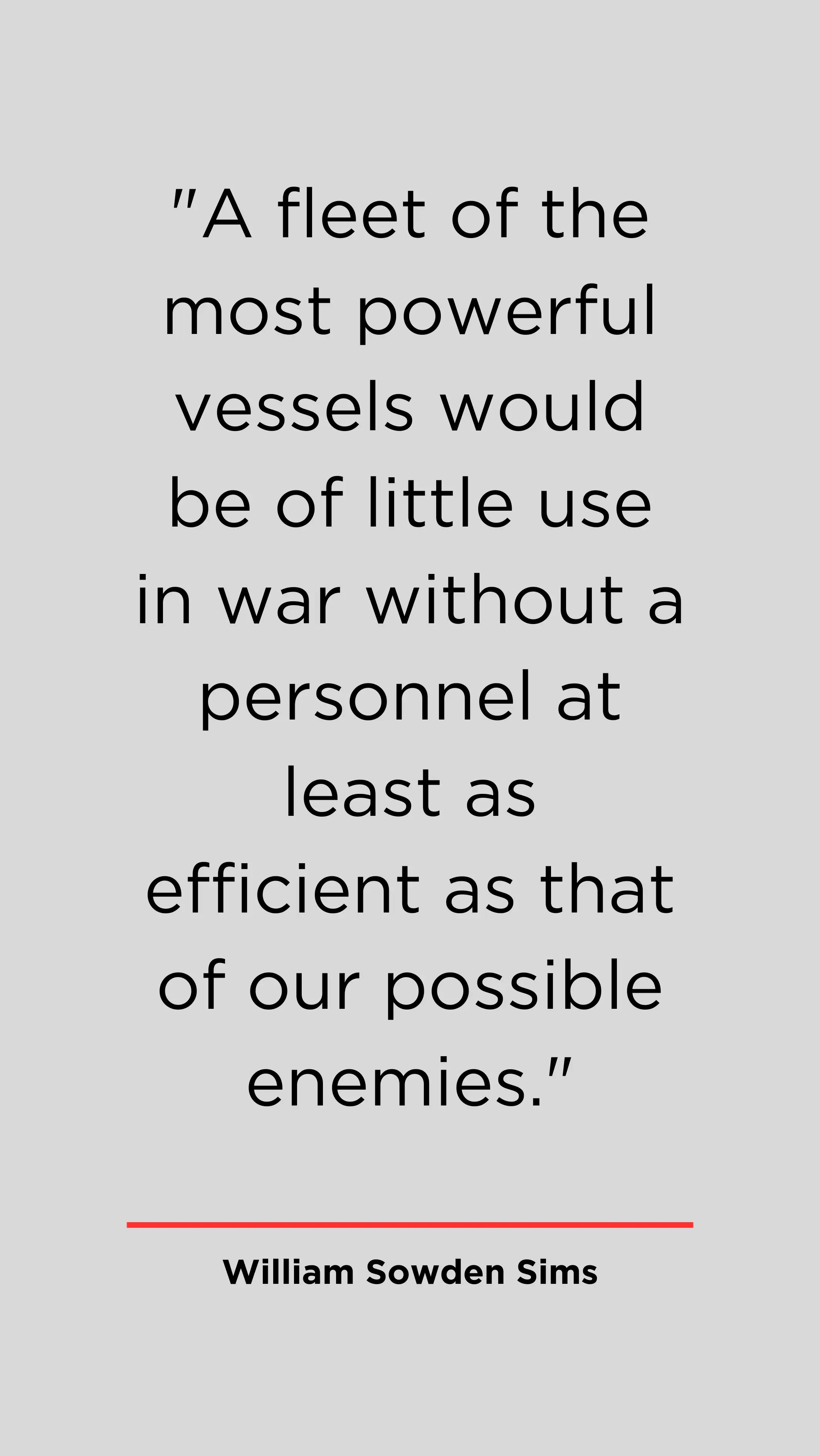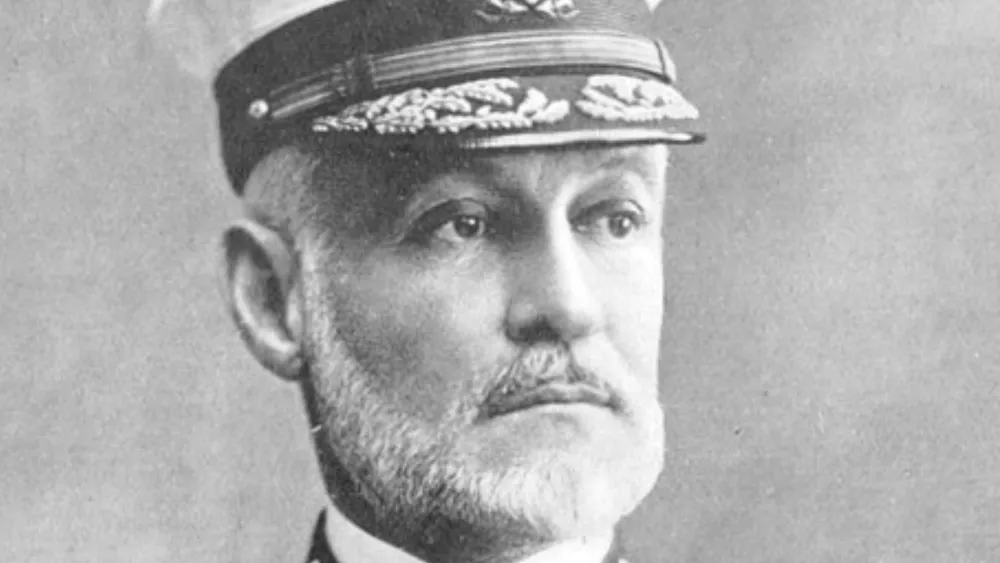Admiral William Sowden Sims, a prominent figure in the United States Navy, played a crucial role in the late 19th and early 20th centuries. He spearheaded significant efforts to modernize the naval forces. Moreover, his remarkable career extended into World War I, where he commanded all U.S. naval operations in Europe. He also served as the president of the Naval War College, a role he held twice. Therefore, it left a lasting impact on the education and strategies that continue to shape the development of naval officers to this day.
Early Years at the Naval Academy
Sims’ transition to the Naval Academy in Annapolis marked a significant turning point. The rigorous academic and physical training provided the ideal environment for young Sims to flourish. Moreover, he quickly adapted to the structured life of a midshipman and embraced the challenges of naval education.
During his time at the Naval Academy, Sims displayed an exceptional aptitude for mathematics. He also expressed an unrivaled determination to excel in every facet of his studies. His professors and peers recognized his brilliance, foreshadowing the remarkable career ahead.
The U.S. Naval Academy honed Sims’ academic prowess and instilled in him the core values of honor, duty, and loyalty. These principles guided his actions and decisions throughout his naval service.
This foundational education was a defining factor in the development of the man who would revolutionize naval warfare. Moreover, William contributed significantly to the United States Navy’s enduring legacy.
William Sowden Sims: Naval Innovation and Reform
Sims’ early naval career was an invaluable crucible in which his visionary ideas would take shape. Stationed on various ships, he encountered the challenges and intricacies of naval warfare firsthand.
From the tumultuous waves of the Atlantic to the expansive horizons of the Pacific, Sims developed a profound understanding of the Navy’s strengths and weaknesses.
Within the creaking bulkheads and salt-tinged air of these ships, Sims encountered the imperatives of reform. His firsthand experiences made him a passionate advocate for change within the U.S. Navy.
He recognized the urgent need for improved training, advanced tactics, and the embrace of cutting-edge technologies in a rapidly evolving era. Sims’ impassioned pleas for change would become a driving force behind the modernization and professionalization of the United States Navy.
One of Sims’ most enduring legacies was his pioneering work on gunnery and fire control. His groundbreaking range-keeping system significantly enhanced the precision of naval gunfire. This innovation not only bolstered the effectiveness of the U.S. Navy in battle but also set a global standard for naval practices.
World War I and the Sims-Adams Report
As World War I raged in Europe, the United States was on the brink of entering the conflict. William Sims was chosen to lead the U.S. Naval Forces in Europe, where he faced the daunting task of coordinating and supporting Allied naval operations.
Sims’ leadership and strategic insight were instrumental in ensuring that American naval forces played a role in the war’s outcome.
After the war, Sims led a study group. This included renowned historian and naval strategist Samuel Eliot Morison to evaluate the U.S. Navy’s wartime performance. Furthermore, the resulting report, known as the “Sims-Adams Report,” was a landmark in naval analysis.
It highlighted the need for a stronger, more modernized navy, a well-planned fleet structure, and a system for professional military education. This time, many of the report’s recommendations were eventually implemented. Therefore, it served as a blueprint for the U.S. Navy’s development in the interwar years.
Professional Military Education of William Sowden Sims
Sims’ passion for naval education extended beyond the Sims-Adams Report. He was pivotal in establishing the Naval War College in Newport, Rhode Island. This is where he served as its president from 1917 to 1922. Sims believed that the Navy’s officers needed more than just practical experience; they required a solid strategy, tactics, and leadership foundation.
Under Sims’ leadership, the Naval War College became a renowned institution for educating and training naval officers. His influence on the curriculum and approach to professional military education continues to shape the development of U.S. naval officers today.
Advocacy for Professional Military Education
William Sowden Sims’ contributions to the United States Navy and the field of naval warfare have reverberated through the annals of history, leaving a profound and lasting legacy. He is celebrated as a distinguished naval officer and a visionary leader who redefined the fabric of naval tactics and strategy.
His innovative approaches to warfare and the unrelenting pursuit of excellence have forever etched his name in the annals of naval history.
As a passionate advocate for professional military education, Sims championed the importance of a well-rounded education for naval officers. Even more, he believed in the cultivation of strategic thinking, leadership, and a profound understanding of naval history. These are the principles that continue to shape the education of naval officers today.
Accordingly, his dedication to this cause has inspired generations of naval leaders who have walked the path he helped pave.

William Sowden Sims and His Legacy in Shaping Naval Warfare
William Sims’ life and career epitomize vision, determination, and dedication to a chosen path. Moreover, his journey from a small Midwestern town to the zenith of naval leadership is proof of the boundless potential of a single individual to reshape history.
The transformation he instigated within the U.S. Navy, from an institution of tradition to modernity and professionalism, remains a beacon of inspiration for those in service and leadership roles.
Sims’ impact transcended national borders: he held a pivotal role in shaping the course of naval warfare worldwide. Without a doubt, his innovative contributions to gunnery became guiding principles for global navies.
Admirals and commanders from various nations have looked to Sims’ ideas and innovations as a source of inspiration in their quests to modernize and excel.




